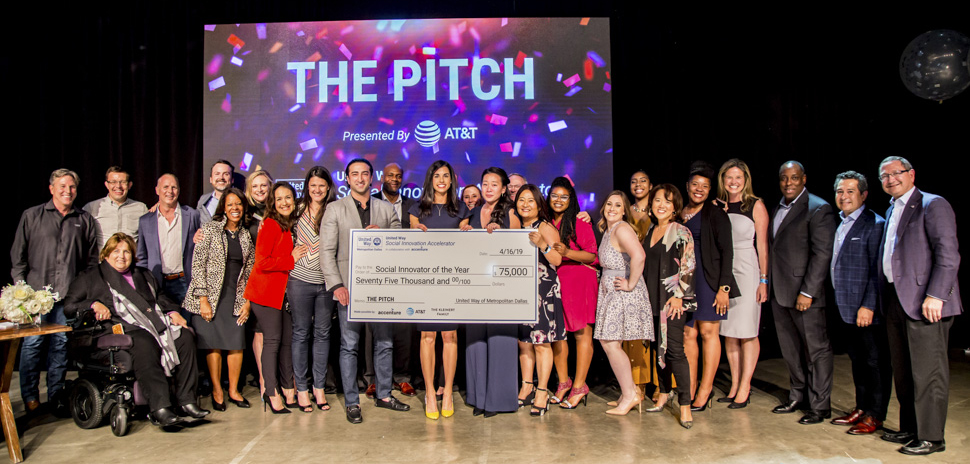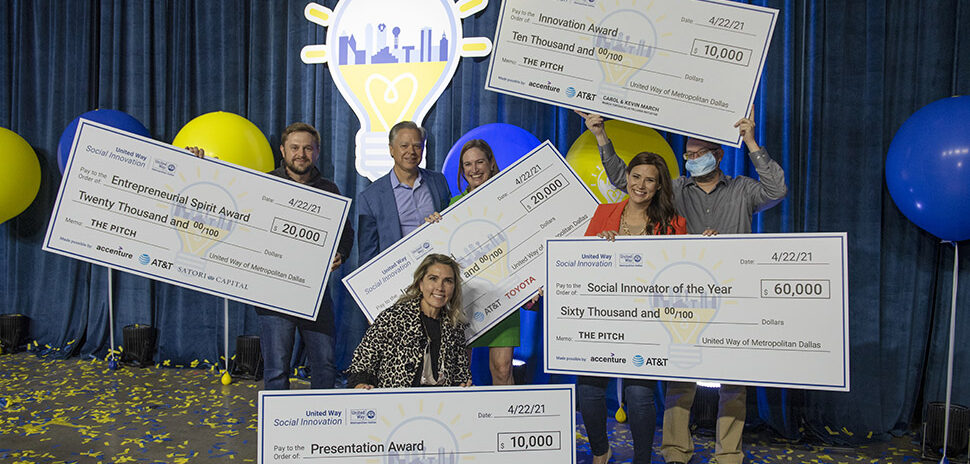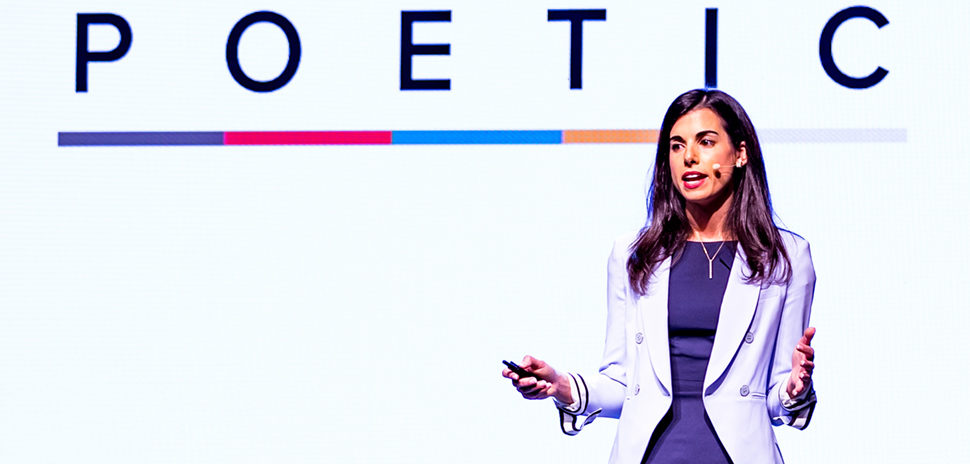United Way of Metropolitan Dallas is shining a light on some of the region’s most promising social pioneers—and giving them a whole lot of money, too.
This year’s third annual social innovation competition awarded $225,000 in two grand events: The Pitch, a live performance at Gilley’s Dallas on April 16, and The Vote, a social media contest from April 8-15.
The five local startups that participated were selected from United Way and Accenture’s yearlong Social Innovation Accelerator program.
“What a wonderful thing it’s been to have watched the growth of the social innovators that went through the Social Innovation Accelerator over the years,” Jennifer Sampson, CEO and president of United Way of Metropolitan Dallas, said onstage at The Pitch. “And to witness the changes and the impact that they are making each and every day in the North Texas community. The winners from the past two years are prime examples of the reach, of the scope, and of the results of the United Way Metropolitan Dallas Social Innovation Accelerator.”
At The Pitch, next year’s class of Accelerator program participants was also announced: Better Block, Carson’s Village, Kids-U,Heart House, Trey Athletes, Habitat for Humanity of Collin County, Home Visit Project, The Walls Project, EdCor, and Southern Dallas Link.
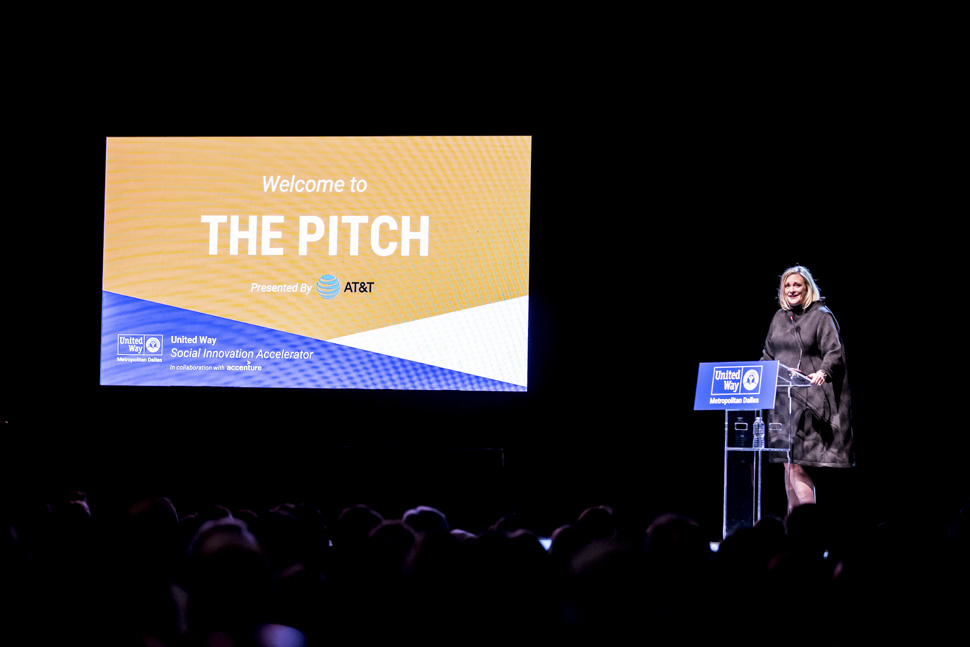
Jennifer Sampson is the CEO and president of United Way of Metropolitan Dallas. [Photo: Marcy Meeks/United Way]
Leading up to the climactic pitch contest, the first $75,000 was divvied up four ways according to online votes. Then, at the grand event presented by AT&T, the
The audience was also able to make donations, live, during The Pitch. “If you’ve been thinking about investing in social innovation, tonight is the night to do it,” Sampson said.
“Social innovation work at United Way of Metropolitan Dallas extends far beyond what you’ll see on the stage tonight and what you saw with the digital campaign this past week,” Sampson said. “Ours is a year-round program investing capital and mentorship in promising social ventures that are focused on creative solutions in the areas of education, financial stability, and health.”
We’ve got a breakdown of it all—the competitors, the pitches, the days leading up to the event, and who took home the prize money.
The Pitch
This year’s contestants were each coached by experts from Young President’s Organization (YPO), who helped culminate their presentation. Each five-minute pitch focused on the entrepreneur’s vision for the future of Dallas in terms of their organization, along with their plans for the additional investment capital.
Following that was a five-minute Q&A session with the judges: Jack D. Furst, founder and CEO of Oak Stream Investors; Ken Hersh, president and CEO at George W. Bush Presidential Center; Sandra Phillips Rogers, group vice president, chief legal officer, and general counsel & corporate secretary of Toyota Motor North America; Mary Templeton, co-chair of United Way of Metropolitan Dallas Annual Campaign; Henry Timms, president and CEO of the Lincoln Center for the Performing Arts; and Steven Williams, CEO of Pepsi Co Foods North America. President of National Business at AT&T Anne Chow served as emcee for the evening.
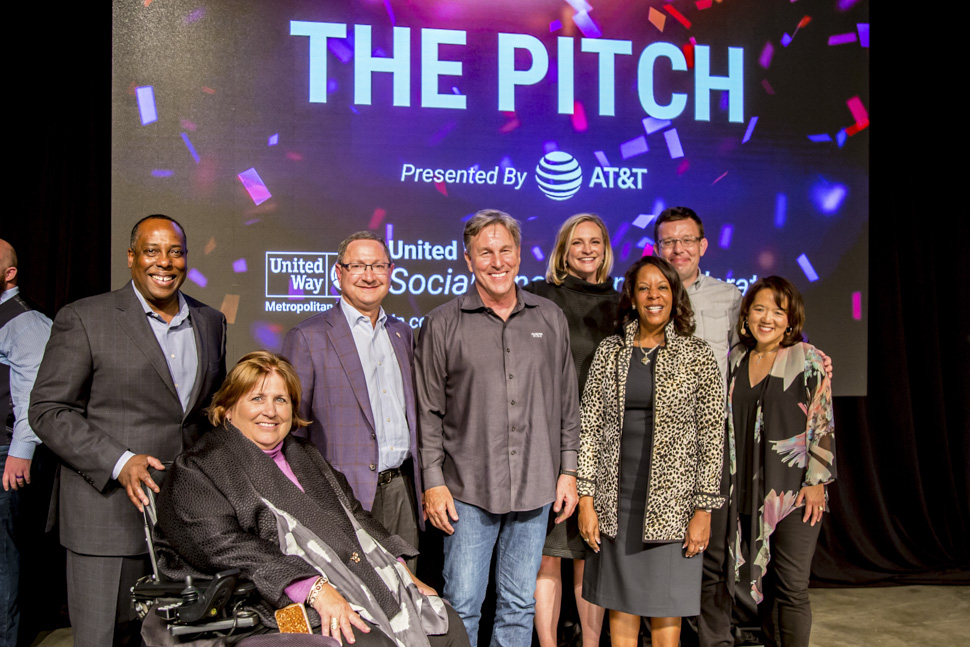
The judge’s panel, along with audience members, voted on the winners of the night. [Photo: Marcy Meeks/United Way]
A variety of social ventures—all local to Dallas-Fort Worth—took the stage, each equipped with its own unique cause and ideas for how to impact the region. POETIC took home the grand prize of Social Innovator of the year, which amounted to $75,000, underwritten by the Kleinert family.
Chris Kleinert said he’s proud to support the five innovators competing, all striving toward impactful social change. “Innovation is an essential component to sustainability and greater impact, and is sparking the development of new solutions to complex community problems,” he said. “The Pitch is essentially the Super Bowl of social entrepreneurship.”
Here’s a rundown of all the pitches:
POETIC
Jennifer Tinker, co-founder and co-CEO of POETIC, began her presentation with a heart-wrenching statistic: 19,000 children are sold for sex in our community. She explained that traffickers prey on the most vulnerable girls, who have been abused, homeless, or involved with CPS. So last year, she and Dr. HaeSung Han launched POETIC as an intensive aftercare model that works directly with the juvenile justice system to engage with girls before traffickers reach them. And it works—93 percent of POETIC girls avoid returning to the juvenile justice system. “I know I’m supposed to talk about financials,” Tinker said, “but we’re going to have to do that during the Q&A. Because our girls are always reduced to a number by the men who buy them, by the traffickers that sell them, and tonight, I need our community to understand what that number really means.”
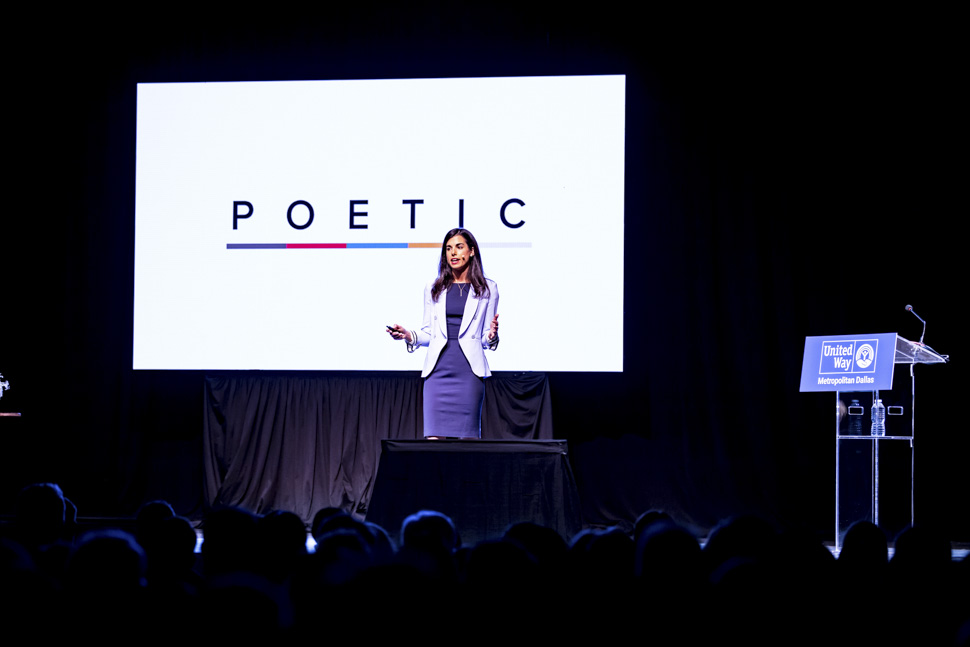
[Photo: Marcy Meeks/United Way]
My Possibilities
The goal of My Possibilities is to give adults with intellectual or developmental disabilities, such as autism or down syndrome, a chance to gain independence and a real-world education through employment. Michael Thomas, executive director, shared his plans for a new for-profit, on-site retail training center that would hire hipsters, or hugely important people. Diversity Inclusion departments are furthering the conversation about the importance of hiring a diverse workforce, but Thomas said hipsters are still the last population being brought to the employment table. Thomas said he thinks My Possibilities can impact 1,000 local hipsters in the next five years through the center. “It’s about creating opportunity,” he said. “And it’s about bringing thousands of hipsters into the workforce in North Texas.”
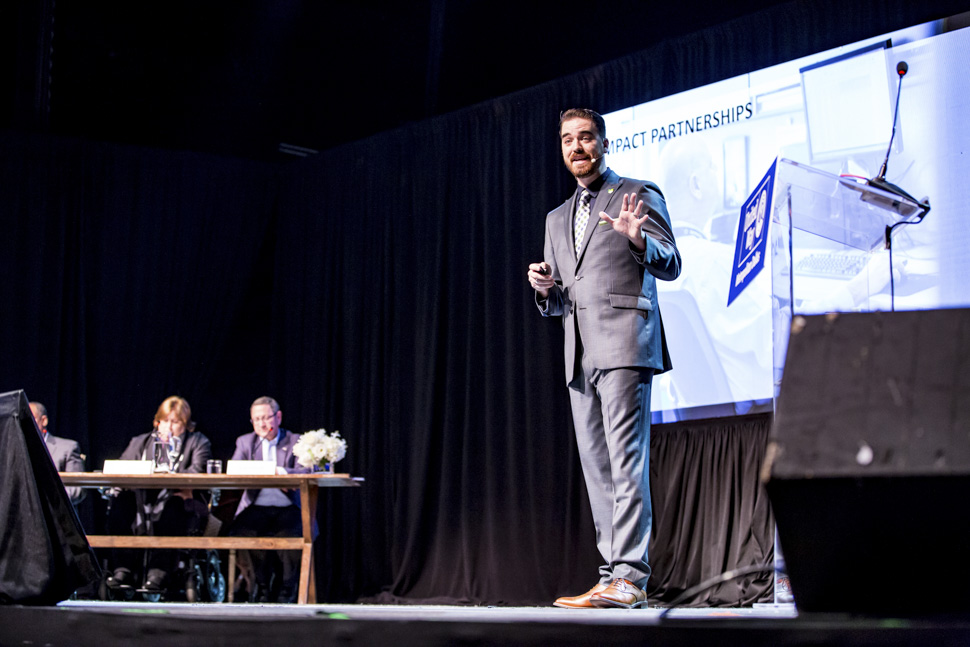
[Photo: Marcy Meeks/United Way]
Readers 2 Leaders
Norma Nelson was teaching in West Dallas when she realized just how frustrated she was that her students were continually behind in reading, no matter what she did. But in 2011, she met a family that was starting an after-school reading program, Readers 2 Leaders. Nelson was quickly hired as the first employee, and hasn’t looked back since—now, she’s the executive director. Readers 2 Leaders is a literacy program that equips out-of-school providers with the tools needed to integrate reading into their programs. She said that statistically, there are 93,000 kindergarten through third-graders in the community that can’t read on grade level. That’s enough to fill AT&T Stadium. “This is a turning point for our city. We have to invest in our kids, and we have to do it today,” she said.
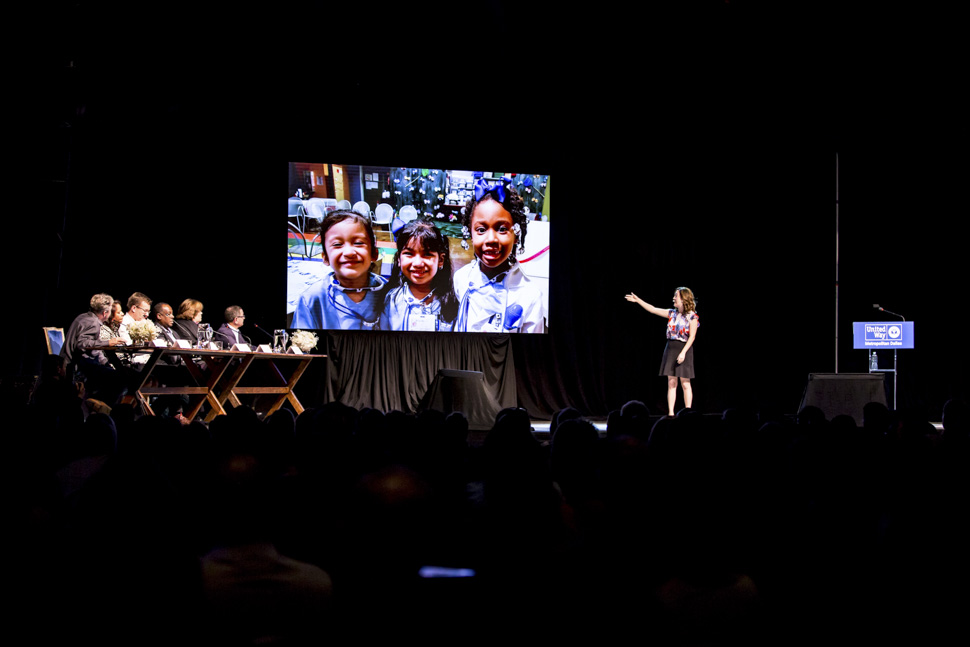
Rosa Es Rojo
Aidee Granados is a six-year breast cancer survivor who decided to share her wealth of knowledge from her own experience with those in the community she serves. So she founded Rosa Es Rojo, a program that aims to make wellness and cancer prevention accessible to Latinas in the U.S., starting with North Texas. Through physical activity, nutrition, emotional health, and positive thinking, The Rojo Way allows women to learn and spread their knowledge. Granados said because Latinos is one of the largest populations in Texas living in poverty, oftentimes, cancer is diagnosed when it’s almost too late. “Rosa Es Rojo is apart of the solution for a healthier community,” Granados said.
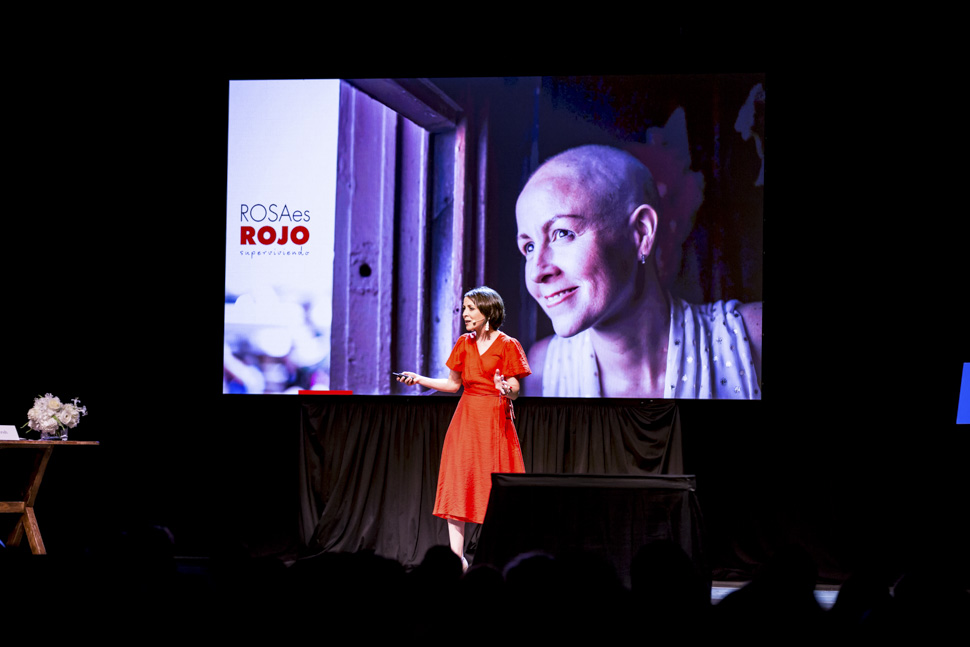
[Photo: Marcy Meeks/United Way]
Student Success Agency
EJ Carrion knows how much time it takes to build a future. During his pitch, he explained that growing up, his mom moved him out of the hood for the chance to give him a better life. He knows it takes more than a few minutes of school counseling to be successful—but that’s exactly what Dallas County high school students are getting. So he co-founded Student Success Agency, an interactive digital mentoring platform that gives students on-demand access to support services, similar to those given by a school counselor. “We can show the rest of the world what it looks like to support kids through our education system in a digital age,” Carrion said. “So that regardless of if you grew up in the hood, like my mom, you can actually get the support services you need.”
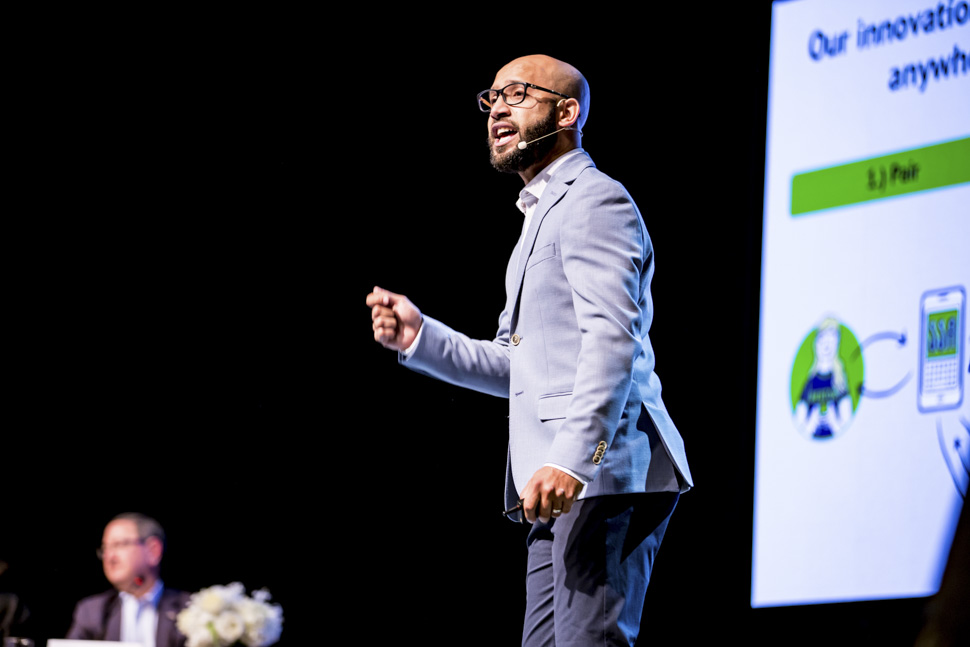
[Photo: Marcy Meeks/United Way]
The Pitch Winners
Social Innovator of the Year: $75,000
POETIC
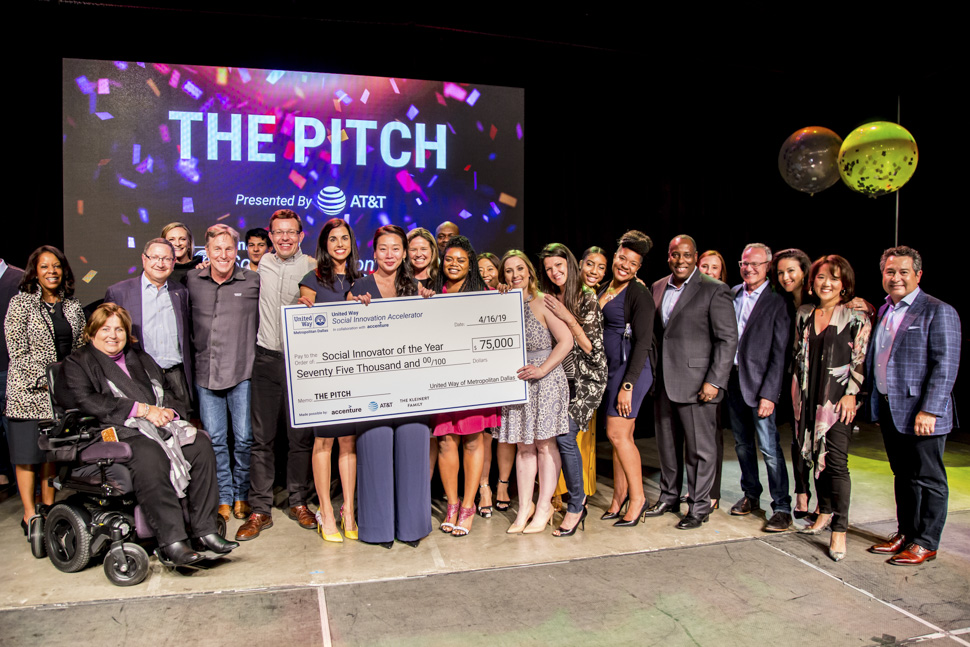
[Photo: Marcy Meeks/United Way]
First Runner-Up: $50,000
Student Success Agency
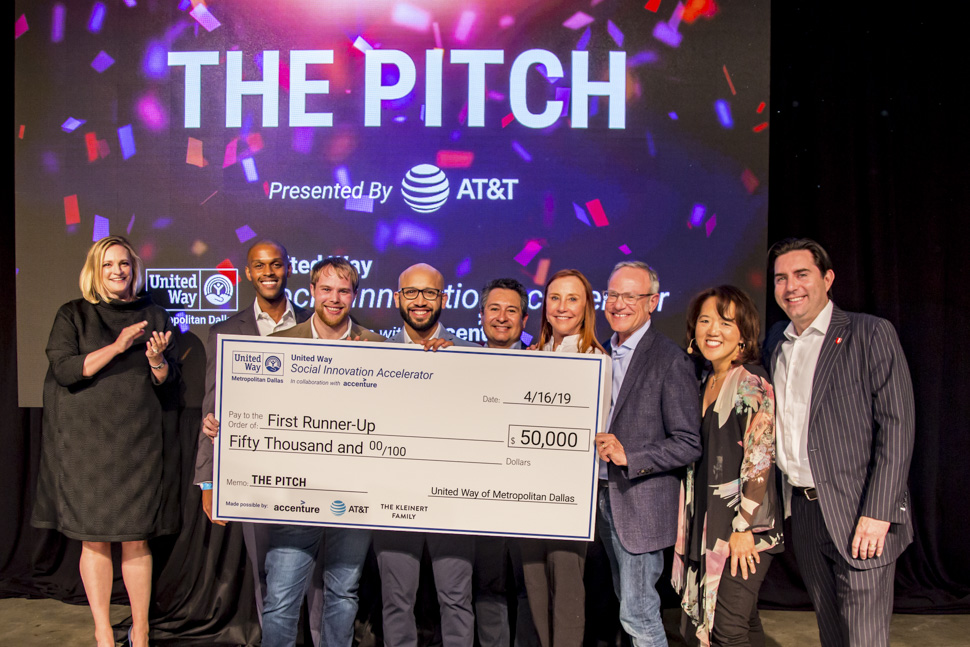
[Photo: Marcy Meeks/United Way]
Second Runner-Up: $25,000
My Possibilities
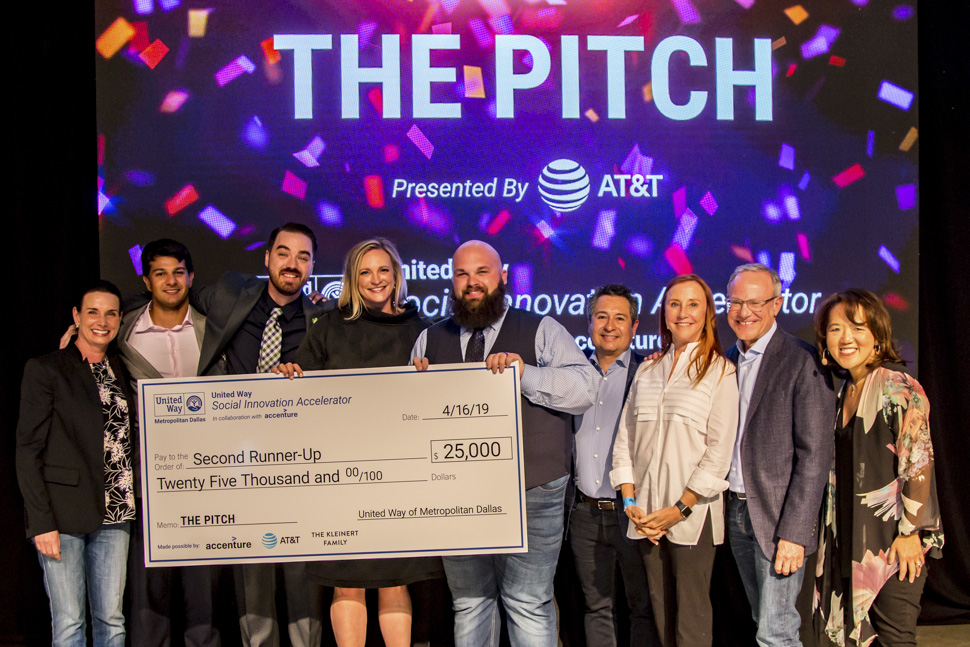
[Photo: Marcy Meeks/United Way]
The Vote Winners
April 10 Award, : $5,000
Student Success Agency
April 12 Award, : $10,000
Student Success Agency
April 15 Award, : $10,000
Rosa Es Rojo
April 16 Award, : $50,000
Student Success Agency
According to United Way, 35 organizations have completed its Social Innovation Accelerator since 2013, and received more than $2.7M in seed funding.
![]()
Get on the list.
Dallas Innovates, every day.
Sign up to keep your eye on what’s new and next in Dallas-Fort Worth, every day.

